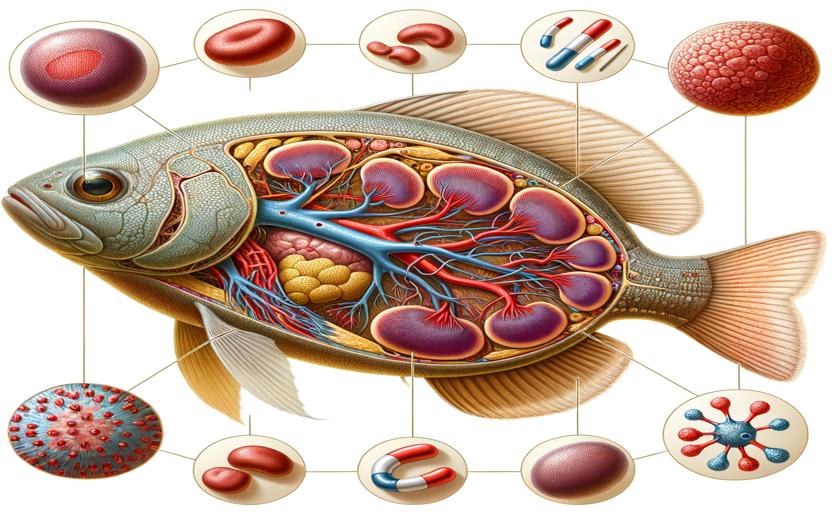
Exploring Zebrafish Kidney's Role in Blood Formation and Virus Defense
Jenn Hoskins
21st March, 2024

Image Source: Natural Science News, 2024
Key Findings
- Zebrafish kidneys act like human bone marrow, producing and activating immune cells
- Kidney cells in zebrafish can "remember" viruses, boosting their immune response
- Zebrafish kidneys can trigger a full defense, similar to human adaptive immunity
References
Main Study
1) Single-cell RNA sequencing unveils the hidden powers of zebrafish kidney for generating both hematopoiesis and adaptive antiviral immunity.
Published 18th March, 2024
https://doi.org/10.7554/eLife.92424
Related Studies
2) Cross-organ single-cell transcriptome profiling reveals macrophage and dendritic cell heterogeneity in zebrafish.
3) Organized B cell sites in cartilaginous fishes reveal the evolutionary foundation of germinal centers.
4) Single-cell transcriptome profiling reveals diverse immune cell populations and their responses to viral infection in the spleen of zebrafish.



 11th March, 2024 | Jenn Hoskins
11th March, 2024 | Jenn Hoskins